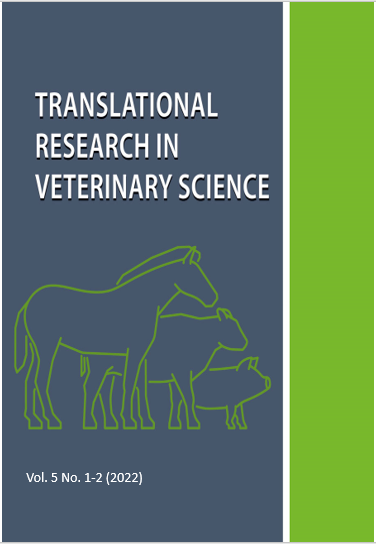SOME PRACTICAL ASPECTS OF COMMERCIAL OPU-TVA AND TRANSFER OF ICSI – PRODUCED EMBRYOS IN MARES
DOI:
https://doi.org/10.12775/TRVS.2022.007Keywords
mares, transfer, OPUAbstract
Acquisition of oocytes from mares by the OPU-TVA method in order to use them for the production of embryos by ICSI, due to the fact that they must be transported abroad, in time
-limited window, by aviation, and its transportation meets the relevant legal requirements governing the shipment of biological material, is a serious logistical challenge. Treatments must be carefully planned in time with an appropriate margin of safety and coordinated on several levels (work of the OPU team, transport company, veterinary administration) which distinguishes this type of undertaking from treatments carried out solely for research purposes within a single entity. The procedure itself also requires efficient cooperation of the entire team, whose task is to obtain oocytes and provide them with appropriate conditions for the time of transport to the laboratory where ICSI will be carried out. Finally, the embryos obtained by this route are frozen. This allows for an unlimited storage time, unlike during classic embryo transfer. Also the frozen embryo reduces the number of recipients to one. For understandable reasons, the need to synchronize recipients estrous cycle is also eliminated. An undeniable advantage of embryos cryopreserved after ICSI is, that they will give a better chance of obtaining pregnancy than embryos washed out directly of the donor’s genital tract and then, cryopreserved. The authors of this work organized a team to offer OPU as a technique of ART in horses in our country. 27 treatments were performed on 26 mares. As a final result 271 oocytes were obtained from which 157 were intended for ICSI. Finally, 28 embryos were produced in this way, which gives about 1 embryo per 1 mare per 1 OPU session. These results do not differ from the results achieved by other centers in the world.
Despite the numerous advantages of using OPU+ICSI, it should be emphasized that the whole procedure is costly and its final effectiveness, comparing to classic embryo transfer in healthy mares, is quite similar. Therefore, according to the authors, OPU+ICSI is particularly useful in the case of mares from which obtaining and embryo after insemination is doubtful due to age or diseases, or what it is even more attractive, when there is a limited sperm availability.
Downloads
Published
How to Cite
Issue
Section
License
Copyright (c) 2022 Maciej Witkowski, Sanchez R, Profaska M, Zając S

This work is licensed under a Creative Commons Attribution-NoDerivatives 4.0 International License.
Title, logo and layout of TR in VS are reserved trademarks of TR in VR.
Stats
Number of views and downloads: 51
Number of citations: 0



